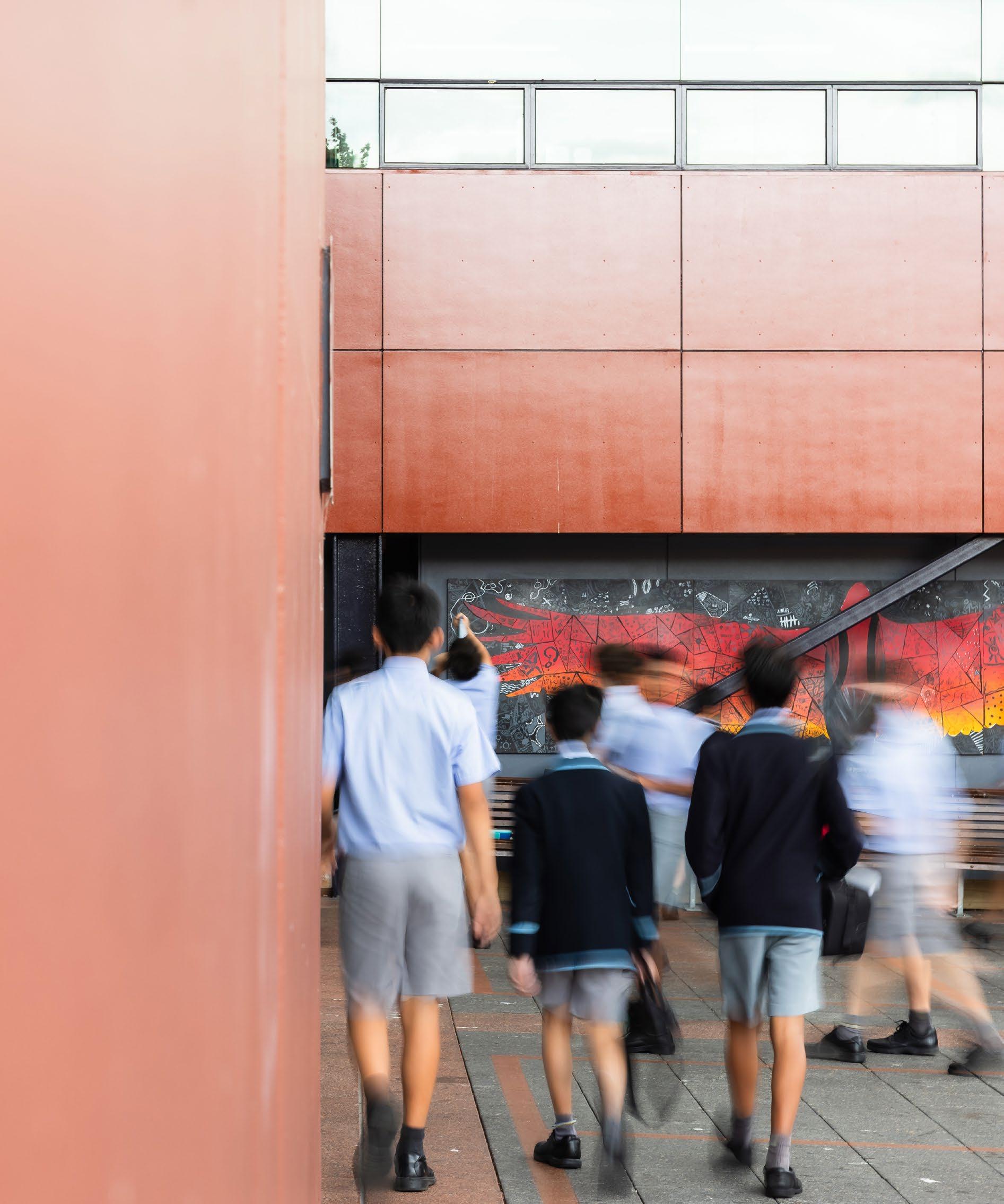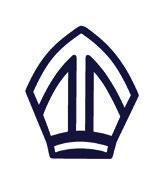MIDDLE SCHOOL
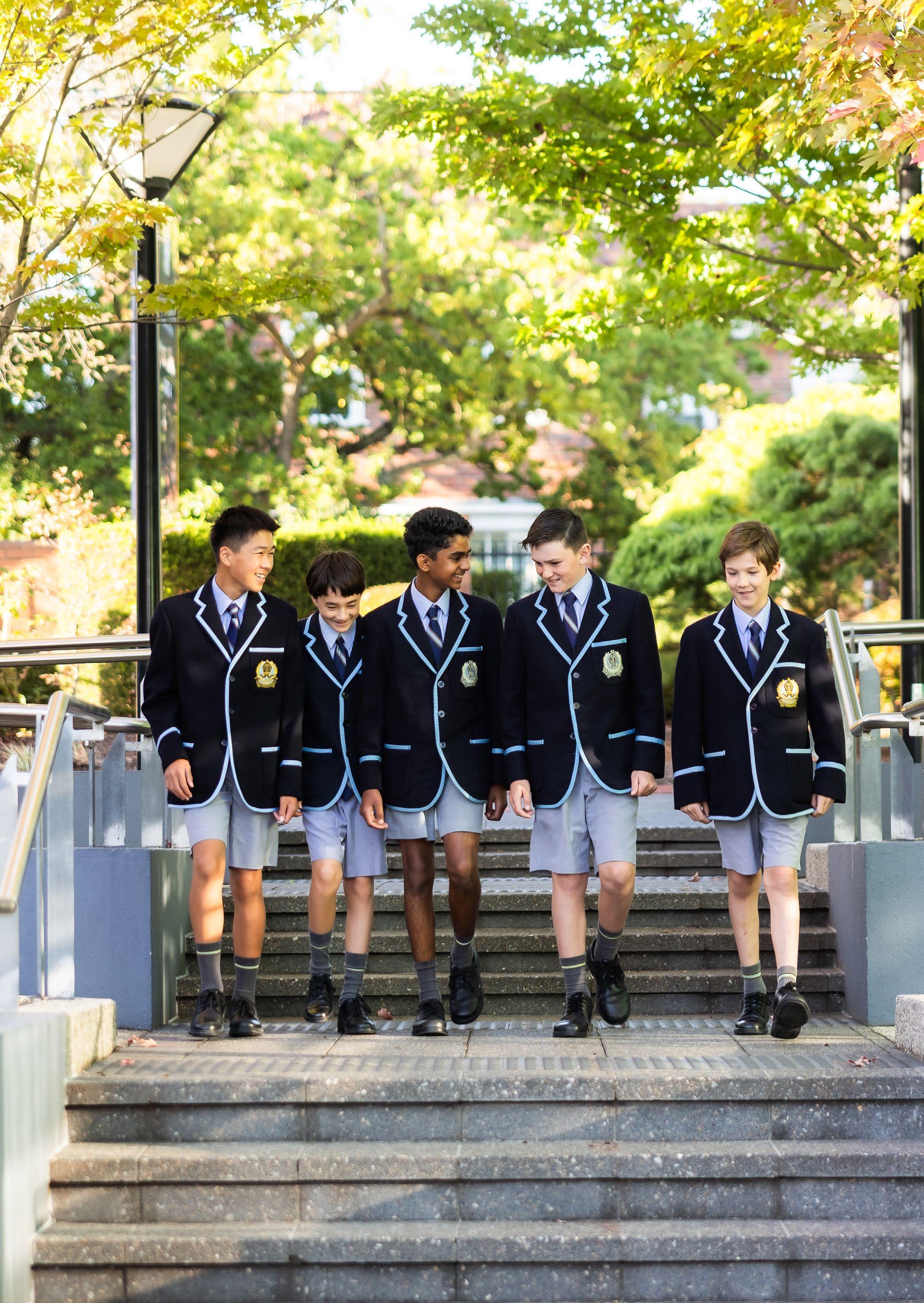






























“Our school aims to nurture students who will contribute to a better world”
































“Our school aims to nurture students who will contribute to a better world”
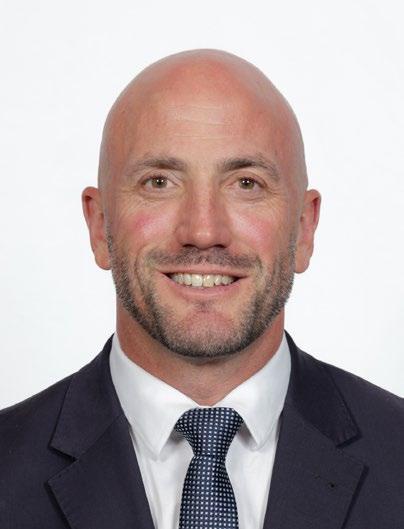
Dear Middle School Parents, It is with great pleasure that I welcome you to Camberwell Grammar School.
Our school aims to nurture students who will contribute to a better world. For this to occur, we undertake the responsibility to motivate our students to learn, whilst instilling the confidence to know that they can.
Camberwell Grammar is a busy place, with boundless opportunities to learn, share and grow within the classroom, music hall, sports field and within a vast array of co-curricular activities. During this time, our students will encounter many challenges that may appear arduous, and it is our role as teachers and parents to work in partnership, to help them navigate their way through these tasks. Your son will meet dedicated and highly professional staff who will always consider what is best for the boys. The synergy between home and school are crucial in maximising potential.
The middle years of a student’s education also coincide with many significant emotional, social and physical changes. The transition between childhood and adolescence is the time in a young person’s life when they move from having most decisions made for them, to a time when they are expected to take more responsibility for themselves and their peers. Some decisions will not always be the best, so I encourage you to gradually step back to enable your son to learn through his own experiences. The sooner you take a step back, the more opportunities your child will have to develop independence and to hone their decision making skills.
The structure of the School reflects the emphasis we place on the transitional years between Primary and Secondary education:
Year 6 is incorporated in the Middle School, allowing for a thorough transition between Year 5 and Year 7. Year 6 students gain a great deal from the vertical House programs with Year 7 and 8, and they become more familiar with specialist teaching and learning programs.
Year 7 is the level at which the School accepts many new students and it is, therefore, an important year of transition for all our students and their families. Establishing new friendship groups and managing one’s time and belongings are among the most challenging elements of Year 7.
Year 8 offers the opportunity for our students to take on extra responsibilities and have a role in guiding the younger students, through activities in their House, sporting and music groups. Having a dedicated Middle School allows us to foster and monitor the leadership in our students.
We have developed an innovative curriculum that incorporates a healthy mix of traditional and contemporary subjects. Significantly, our Pastoral Care system is reinforced through this arrangement, so that all of our students receive a high level of attention and care. The Middle School is proud to have Form Teachers who specialise in the education of adolescent boys and they will be your first point of contact with the school. Our interdisciplinary approach to our curriculum design allows our teachers to get to know your son well. The students benefit from the privileged relationships they share with these staff, who will become their learning mentors.
The School’s Learning Management System - DEEDS - contains information on the activities your child will engage in, all underpinned by our values: Learning, Respect, Integrity, Courage and Optimism. The information provided within DEEDS will hopefully satisfy your queries as they arise; it also contains relevant forms, dates, staffing details and timely information, tailored to your son’s involvement.
I am very excited about the year ahead and look forward to partnering with you in your son’s education.
Warm regards,
Troy Stanley Head of Middle School
We value deeds by our

Our Middle School curriculum is designed to engage and challenge our students; to provide safe structures as they explore their newfound independence; to guide them as they deal with the challenges of an increasingly complex technological world; and to provide them with the skills, confidence and sensitivity they will need in their interactions with others. It is constantly evolving in response to our changing world, students’ interests and activities, and developments in educational thinking, pedagogies, and prerequisites of future employment.
We continue to build collaborative activities, often incorporating design thinking, into core curricula, allowing each student to develop key skills that he will need in his schooling and beyond. Rather than work through prescribed activities, students are given scope to design their own solutions to problems and to work with others in refining their product to meet the demands of the task. Creative solutions involve students adapting technologies and reimagining how materials can be used to suit their purposes.
The Personal and Social Development (PSD) course is a key part of our Pastoral Care Program. Weekly sessions enable Form Teachers to discuss key issues with their class about the way they interact with each other in the classroom, the schoolyard and in their online world,
and their attitudes towards others. Emotional intelligence, mindfulness, personal strengths, stress management, and the importance of sleep and nutrition are also explored. Several incursions throughout the year offer students the opportunity to see these issues through different scenarios and media, including theatrical presentations, lectures and role plays.
Embedded throughout our curriculum and our daily interactions with our students are the School’s values. They are a bedrock for discussions around behaviour, interactions with peers and teachers, and appropriate responses to the situations and changes they are likely to experience at school and throughout their lives.
There are opportunities for students to try their hand at learning new languages, representing their House and School in various sporting activities, or learning a new instrument. Students can also perform on stage, join various clubs such as Chess and Makerspace, and select from a wide range of co-curricular activities.
Our students also have the opportunity to participate in external activities, including poetry recitations, various competitions in Mathematics, Science and Geography, and in challenges such as the da Vinci Decathlon, Tournament of Minds and Debating.
English and History
Science and Geography
Development
Mathematics
YEAR 6
Chinese
YEAR 7
Languages: Chinese/ Indonesian/French/Latin
YEAR 8
Languages): Two from Chinese/Indonesian/ French/Latin Music
Drama
Information Technology
Creative Design Solutions
Electives: Music Technology – Composition
Music Technology – Recording
Advanced Musicianship
Drama Film Robotics
Visual Communication
STEM
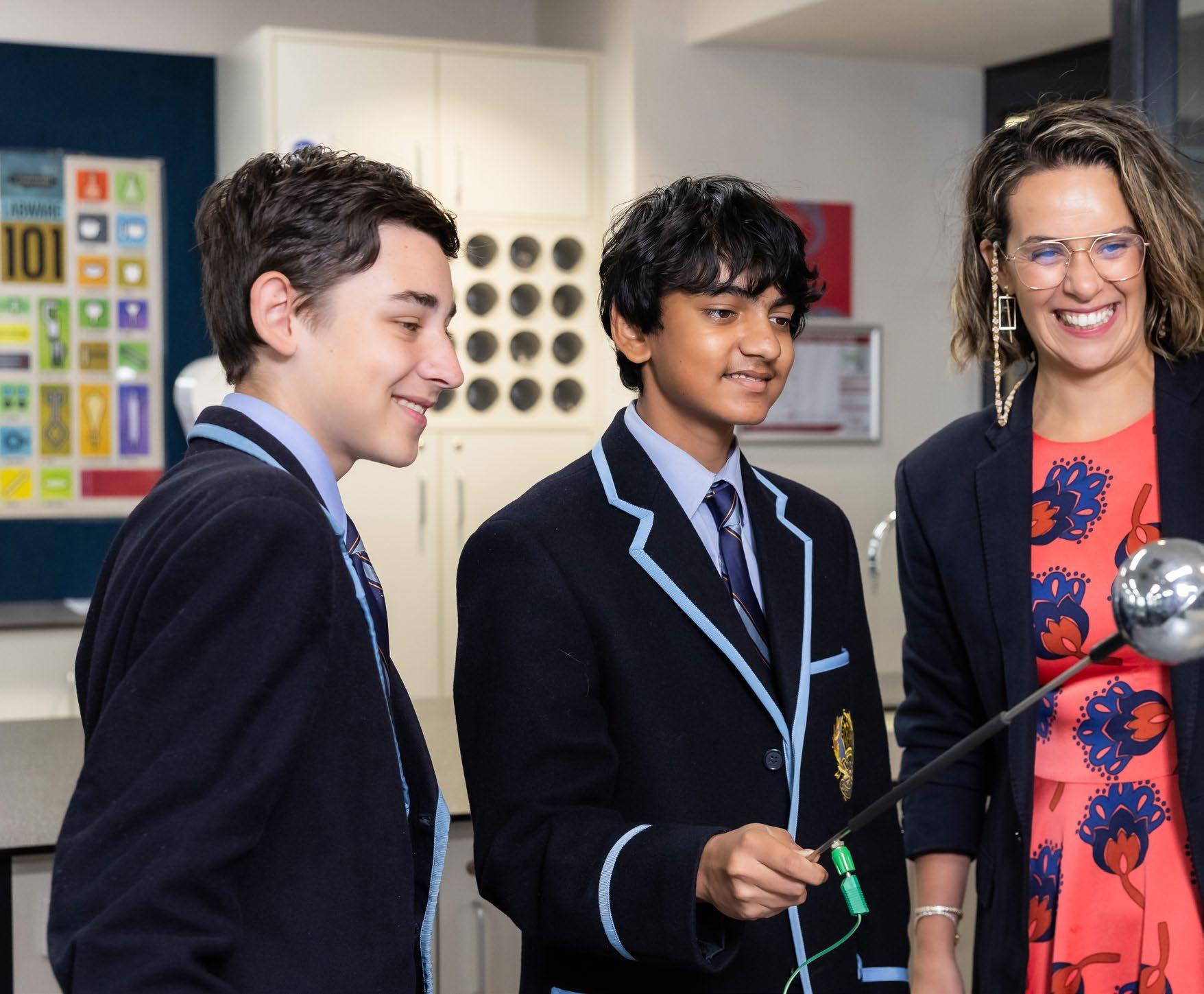
“Assessment tasks at each year level enable us to make meaningful comparisons on individual growth”
In the study of Drama students use their imagination and creativity to produce work which is entertaining, challenging, playful, and, ultimately, performed to an audience. They develop skills of vocal and physical expression, as well as those of analysis and collaboration. They interpret existing scripts, devise original material and experiment with dramatic elements. In their exploration of a range of exciting and unusual topics, they discover how to operate as both individual performers and members of a cast.
In Keep Calm and Compose, students study a variety of compositional styles and techniques, from simple classical styles to contemporary styles such as blues, pop and rock. Using carefully structured tasks, students of all abilities create, organise, edit and listen critically to their own compositions using Sibelius software. The course is designed and structured to enable students of all musical levels (from beginner to advanced) to take part in this subject.
In Music for Games and Film the course focuses on practical and creative tasks, which are completed in an engaging and dynamic environment. Students use the industry-standard software Apple Logic Pro and learn to conceive, produce, edit, mix and master various audio products. Students also explore the history of recorded sound.
Advanced Musicianship is ideal for those students already learning an instrument. Students develop their theoretical knowledge, aural and critical listening skills. Creative tasks, such as composition and improvisation, are also part of their study. This subject is ideal for those students who would like to continue their music studies in Senior School.
Students study the popular television genre of Crime Drama. They then form teams and develop a script, then shoot and edit their own original Crime Drama Program.
Using VEX IQ Robotics kits, students design and build a robot. This is a hands-on course where they learn by doing. Initially, students follow set procedures to build and program their robot. Having familiarised themselves with the VEX robots, students have the opportunity to adapt their robots to the current year’s challenge. They complete design cycles to enhance the capabilities of their robot and improve their results, based on feedback from the challenge. In addition to robotics, students have the opportunity to complete a short unit on Game Development.
Students engage in a range of activities relating to Science, Technology, Engineering and Mathematics. These include:
• constructing objects to specifications to fulfil a given brief
• testing variables relating to the environment and presenting the data in different formats
• devising recreational activities in a physical environment, based on the features of the landscape
• investigating the mathematics of the natural world
• evaluating data to identify opportunities for sustainable development.
Collaboration and communication are key skills in this unit, and students have the opportunity to test their ideas, incorporating design thinking.
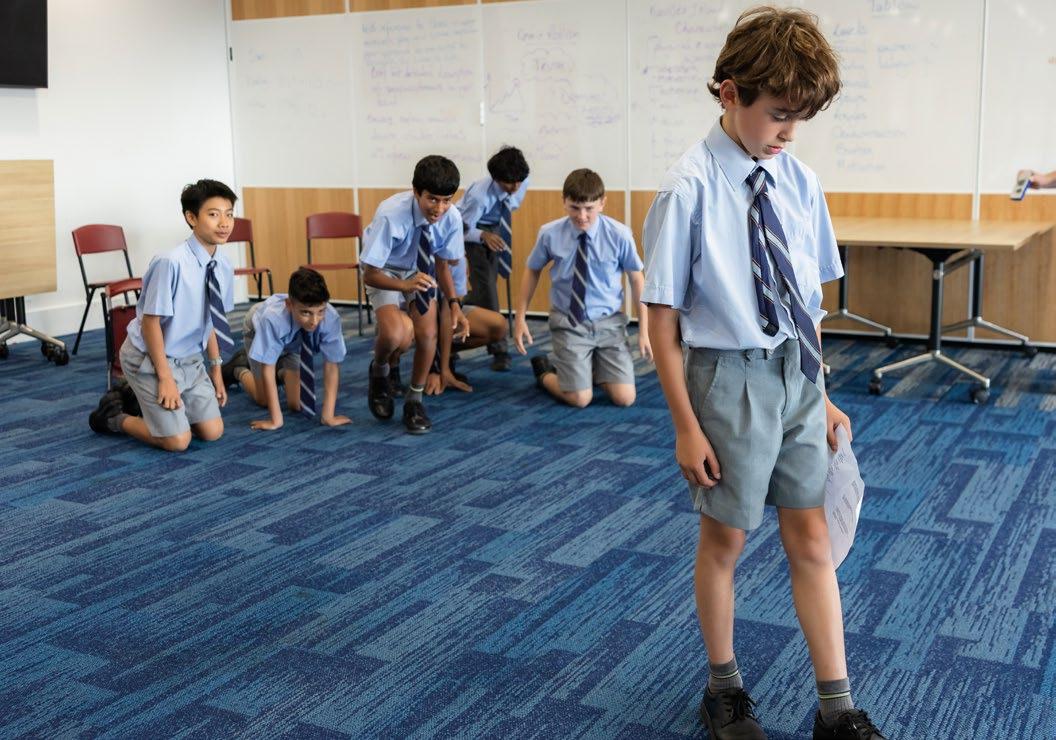
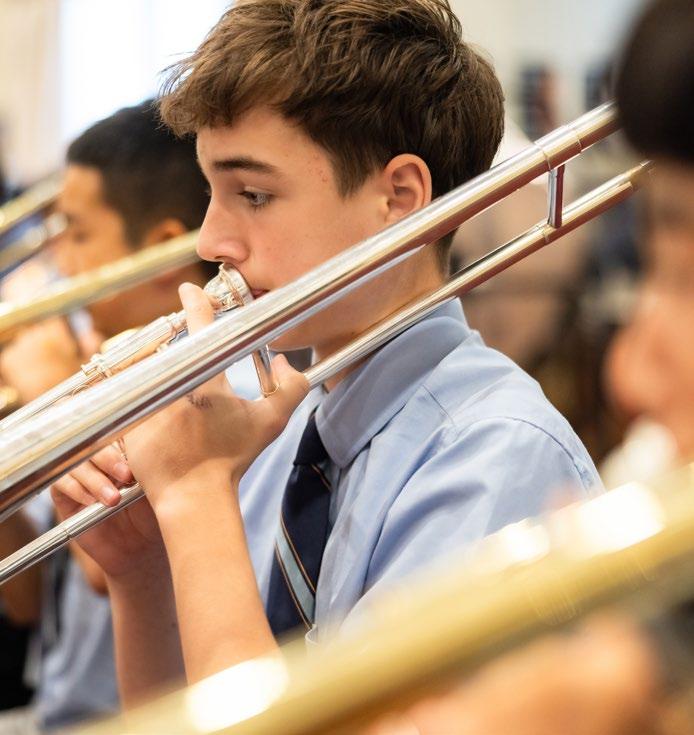
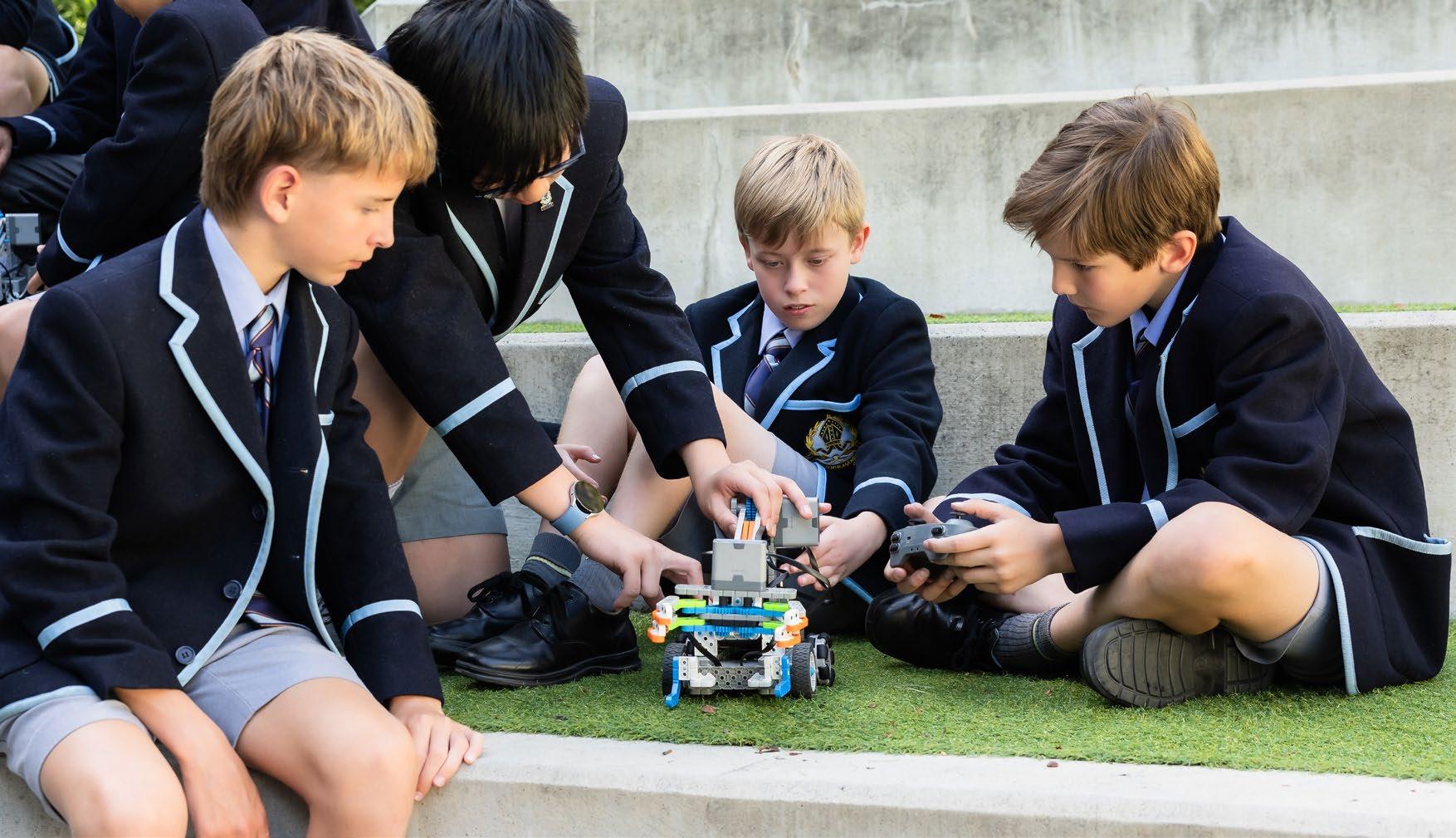
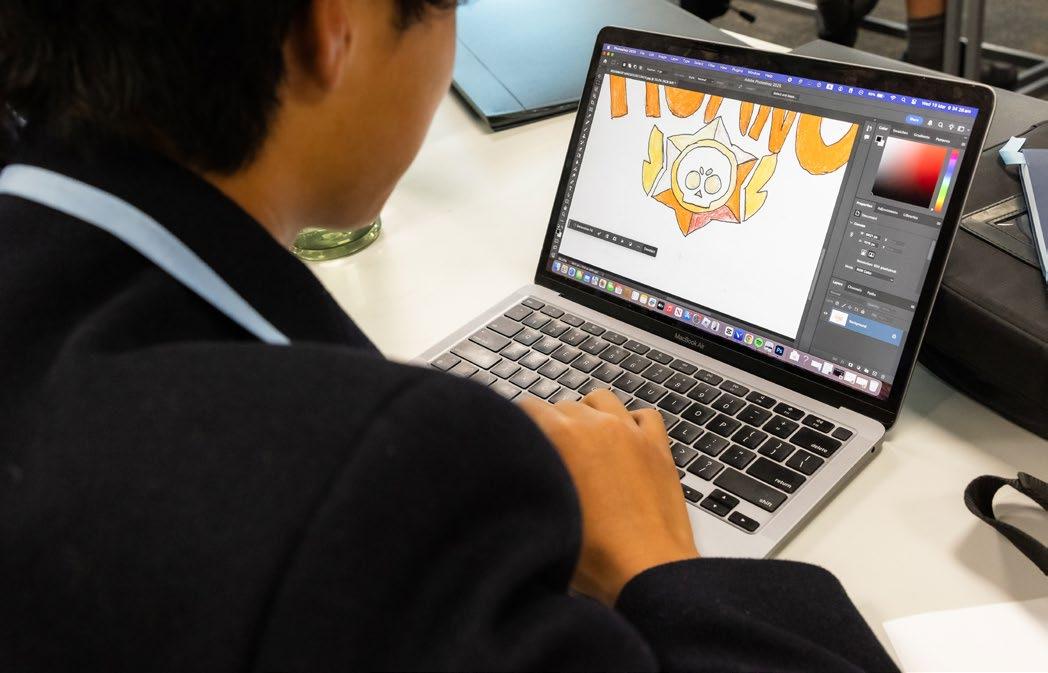
We live in a world where visual communication dominates our environment and impacts on many aspects of everyday life. Information, ideas and opinions rely on methods of visual communication to convey personal, commercial and professional messages. Advertising, marketing, product design and the constructed environment (architecture) influence how we react to an issue, form an opinion, or purchase a product.
This subject introduces students to some of the manual and digital skills used in the production of visual communications. Through a range of tasks, students learn about the design elements and explore 2 and 3-dimensional representations using
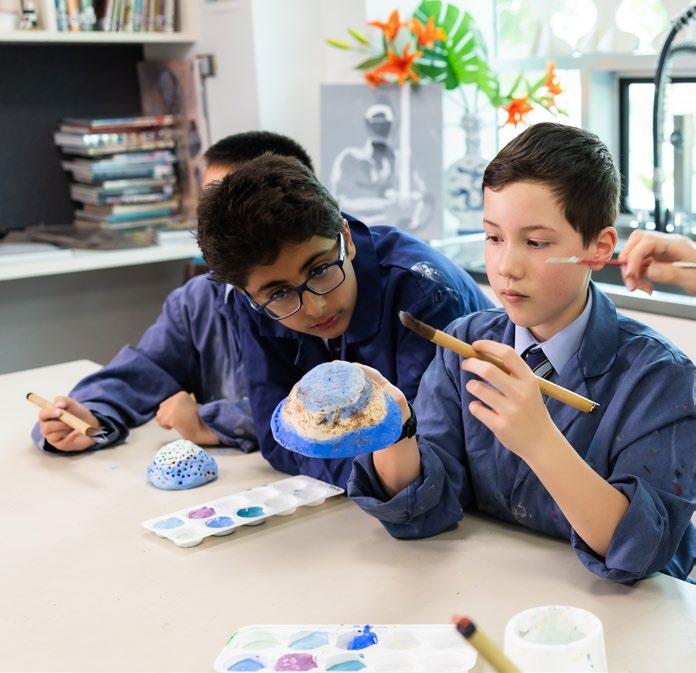
manual drawing and computer applications. All tasks challenge students to apply creative, critical, and reflective thinking while they learn to visually represent their ideas and produce final visual communication presentations. All required materials and equipment are supplied.
In the Middle School students are introduced to four languages other than English including Chinese (Mandarin), French, Indonesian and Latin. In Year 7 students learn two languages in Term 1 and the other two in Term 2. They then choose two to study for the remainder of Year 7 and in Year 8. They continue learning at least one language until Year 10.
The Middle School Gifted and Talented Program is led by Ms Georgia Bellchambers who is currently completing a Master of Education with a specialisation in Gifted Education. The program is informed by contemporary research and grounded in evidence-based best practice.
Grounded in Gagné’s Differentiated Model of Giftedness and Talent, we recognise that giftedness is not a destination but a starting point. For natural abilities to evolve into systematically developed skills, they must be cultivated through intentional developmental processes—best supported by a range of provisions and a continuum of services. Our program is designed to nurture intellectual potential by offering high-ability students purposeful challenge, targeted extension and meaningful enrichment opportunities.
We are also guided by Sternberg’s theory of Transformational Giftedness, which encourages students to use their abilities to be positive agents of change in the world around them.
Accordingly, our program seeks to empower our gifted and talented students to:
• think critically and independently
• engage with complexity and challenge
• take intellectual risks
• reflect deeply and act ethically.
Ultimately, we aim to foster students’ passion, purpose and potential, equipping them to make meaningful contributions to their communities and beyond.
Differentiation
Our teachers are deliberate in the design of content, process and product to ensure students are appropriately challenged and supported.
High-potential students are supported through:
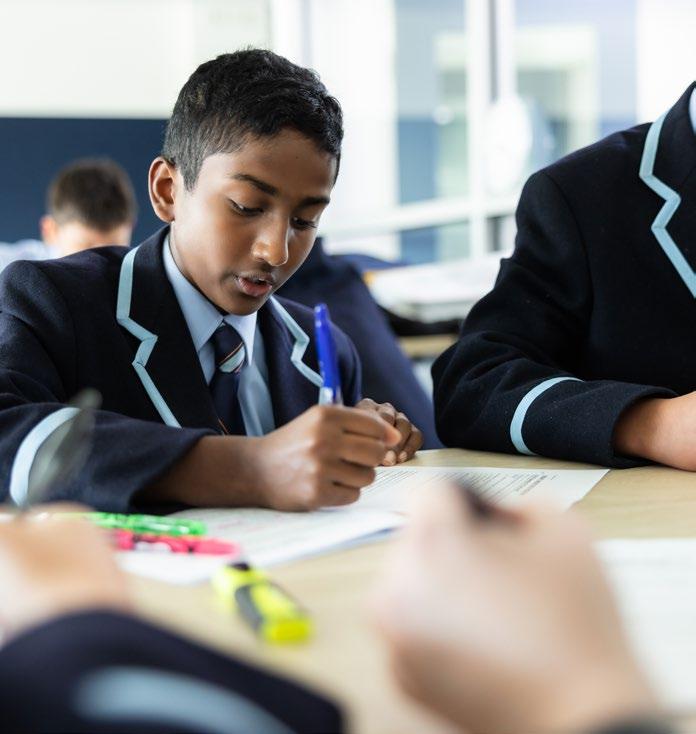
• Enriched tasks that explore greater depth and complexity
• Flexible pacing tailored to individual readiness
• Open-ended inquiry and real-world problem-solving that promote creativity, analysis and application.
Our Middle School Enrichment Program is designed to engage and extend high-ability students through intellectually rich learning experiences that go beyond the standard curriculum. Across Terms 2 and 3, a range of subject-specific enrichment units are offered, including:
• Commerce
Students participate in the ASX Sharemarket Game, gaining a practical introduction to economic principles, market behaviour and financial literacy.
• Ethics and Philosophy
This unit introduces students to key ethical frameworks and philosophical inquiry, while developing collaborative dialogue and moral reasoning in preparation for the Ethics Olympiad.
• Global Politics
Students explore systems of power, international relations and pressing global issues through critical discussion and debate.
• History
A ‘History Mysteries’ approach invites students to analyse sources, evaluate diverse perspectives and investigate unresolved historical questions.
• Languages
An Introduction to Ancient Greek deepens students’ understanding of language structure and fosters an appreciation of classical cultures.
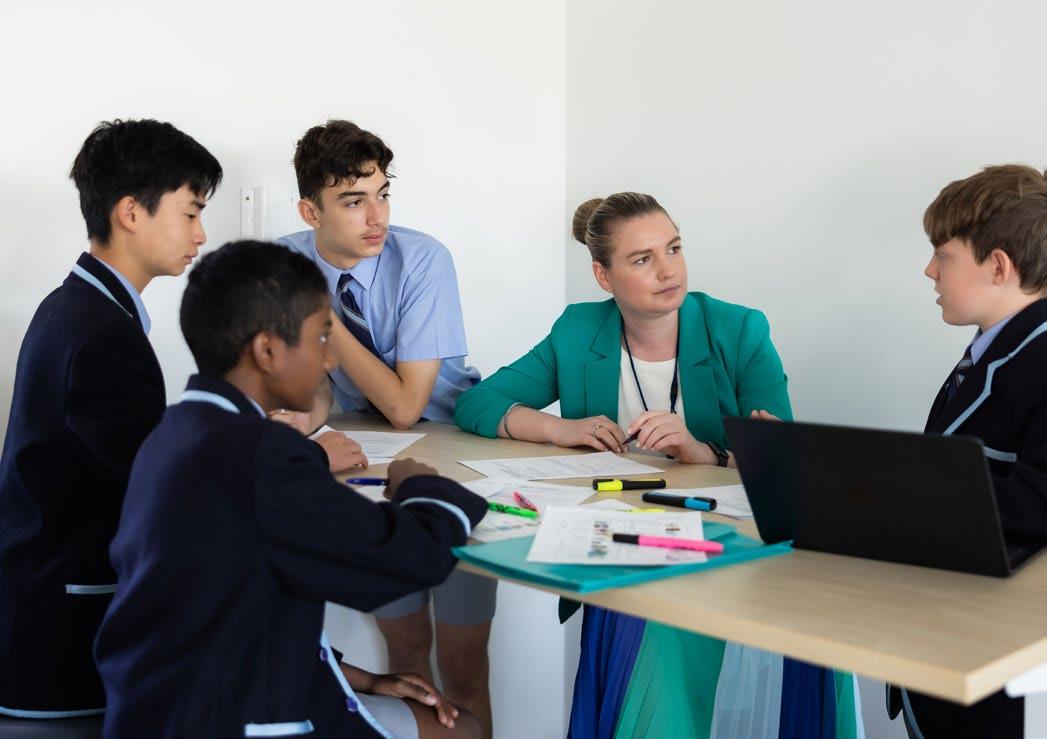
• Literature
Students engage with Shakespeare, global texts and poetry, exploring complex themes through comparative analysis and literary interpretation.
• Mathematics
These units challenge students with advanced problems from a range of competitions, enhancing abstract reasoning in algebra, geometry, number theory and probability.
• Science
Through problem-based investigations and preparation for the Science Talent Search, students develop inquiry skills, scientific reasoning and a realworld approach to experimentation.
Participation is by invitation, based on assessment data, teacher nomination and demonstrated readiness for academic extension.
Students have access to a range of academic competitions, many of which are opt-in or by invitation based on aptitude and interest.
Competitions include:
• Australian Geography Competition
• Australian History Competition
• Australian Informatics Olympiad
• Australian Intermediate Mathematics Olympiad
• Australian Mathematics Competition
• Big Science Competition
• da Vinci Decathlon
• Ethics Olympiad
• Junior Science Olympiad
• Kids’ Lit Quiz
• Melbourne University School Mathematics Competition
• National Computational and Algorithmic Thinking Competition
• School of Mathematics and Statistics Research Challenge
• The Parliament Prize Workshops and Conferences
Students are also offered opportunities to participate in a variety of workshops and conferences that extend their learning beyond the classroom. This includes:
• BrainSTEM: Building Resilient Minds (Design Thinking) Workshops
A hands-on program fostering program solving,
innovation and collaboration through real-world STEM challenges.
• Writers’ Workshop
Led by visiting authors, these workshops inspire and support budding young writers to refine their craft and explore creative expression.
• Thriving Minds: The Junior Thinkers Conference
Designed for curious and gifted students, this event encourages students to explore thoughtprovoking ideas across philosophy, science and ethics. Through meaningful discussions with peers, students are encouraged to think critically and creatively, promoting interdisciplinary thinking and a lifelong love of learning.
Future Problem Solving is an internationally recognised program that challenges students to think critically, creatively and ethically about complex global issues.
In this select-entry Year 8 Elective, students work in teams to analyse future scenarios grounded in emerging global trends. They then apply a structured six-step problem-solving process to develop innovative solutions, refining their ability to communicate ideas with precision and impact.
Students can participate in our in-school chess program, which includes lunchtime training sessions led by a Grandmaster. These sessions cater to all levels of experience, from beginners to advanced players and focus on developing students’ tactical understanding, foresight and game strategy.
In addition to the internal program, students may also represent the school in a range of interschool chess competitions throughout the year. These events offer a competitive and collaborative environment where students can apply their skills, engage with peers from other schools and experience tournament-style play.
Student voice is at the heart of our Gifted and Talented Program. We regularly seek feedback from participants to ensure their learning is engaging, meaningful and responsive to their needs.
Students tell us they value the opportunity to think deeply, work collaboratively with like-minded peers and explore topics that extend beyond the standard curriculum. Many speak of the confidence they gain through open-ended challenges and the sense of purpose they feel when harnessing their talents to address real-world issues.
The Learning Enhancement Department employs a variety of strategies to identify students needing additional support, including testing and academic performance, teacher, parent or self-referral. Teachers in this department work with students in a variety of ways. This includes the provision of Literacy and Numeracy classes focused on explicit instruction and targeted skill development for each student so that they can achieve optimal outcomes. We also provide individual or small group sessions which are designed to target skill development for students who may need additional time and support to consolidate their learning. We are driven by a belief that when provided with such opportunities the boys can and will experience success in their learning.
In addition, to ensure they receive the support they need in all classes, Learning Profiles are created for each student diagnosed with a learning difficulty. Staff liaise with classroom teachers, Form teachers and Tutors, other support personnel and external specialists to develop classroom strategies and individual plans and to monitor student progress.
The School employs three psychologists to assist students in their personal and academic development. They provide support, guidance and counselling to students with academic, language, social, and emotional challenges. Our Counsellors also work closely with the Pastoral Leadership Team to develop
strategies that enhance resilience, connectedness, and wellbeing.
The PSD program develops skills and fosters attitudes that empower students to adopt healthy academic, social, emotional and physical lives. At the core of this program is instilling the School Values, Learning, Respect, Integrity, Courage and Optimism into our daily life at school.
The PSD Program aims to:
• enrich the Pastoral Care program in the Middle School by providing Form Teachers with another avenue to develop relationships with the students in their care
• fulfill the requirements of instruction in Health and other areas such as personal development.
The program makes a significant contribution to preparing students to take a responsible and productive role in society and to develop in them a commitment to life-long learning.
This purpose will be achieved by developing in each student:
• self esteem and social wellbeing
• understanding of health and lifestyle
• communication competencies, including familiarity with, and critical perspectives of digital technology
• thinking, research and study skills
• puberty and healthy relationships
• planning, decision making and time management skills.
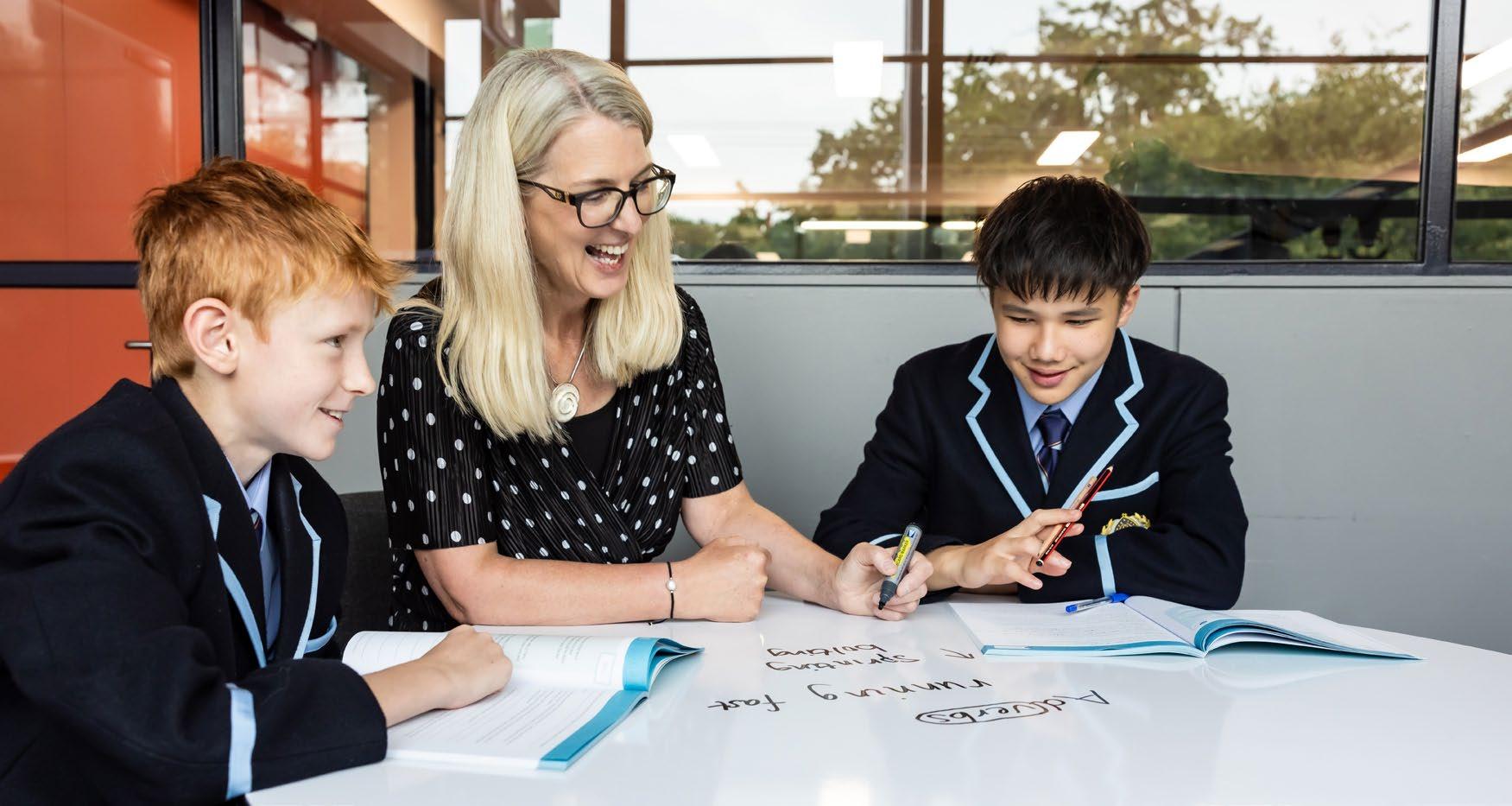
Our co-curricular program further embeds our Pastoral Care framework, helping to develop selfesteem, resilience, leadership and teamwork. Student participation in these activities helps to create a realisation that they are part of something much bigger
Orchestras
Concert Bands Choirs
Chamber Music Concerts and Musicals Classroom Music
than themselves. In many cases students will become part of several groups each year. We believe that their participation in such groups helps to balance their schedule and enhance their academic pursuits
Athletics Swimming
House Sport
Middle School Production
Senior School Production
Inter-school
Classroom Drama
Winter Summer Spring Tours
Year Level Camps Year 8 Outdoor Ed Horse Riding Sailing Whitewater Canoeing Rock Climbing Mountain Biking
Self-Defence Coding Model Building Chess Sport
Camps Tours Cadets (Trial) Rowing Sea Kayaking Sustainability
Debating Entrepreurship Robotics Coaching
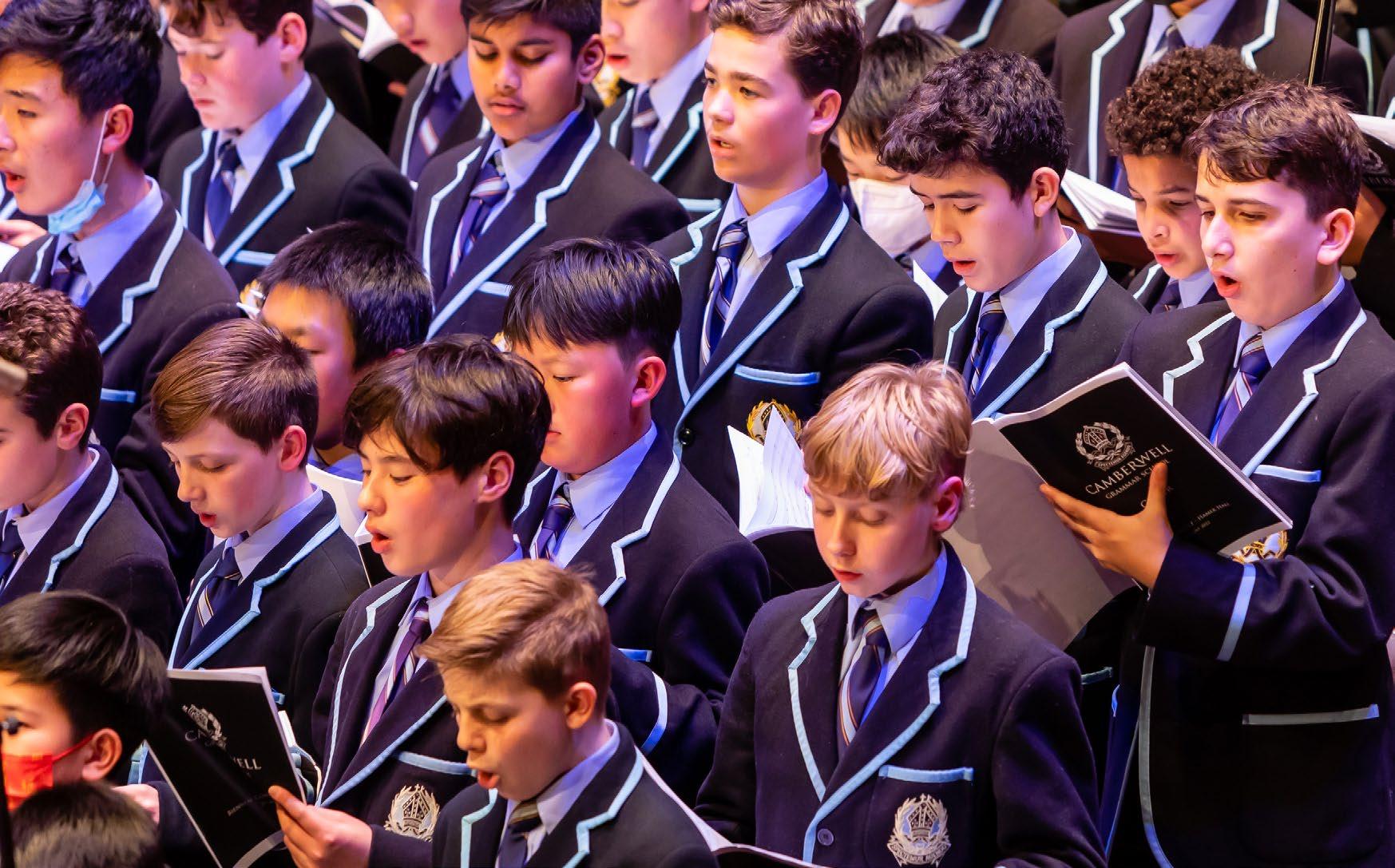
In Year 6 we encourage students to continue with their instrumental lessons and we offer instruction to those who may not yet have had the chance to learn.
In Year 7, students not already committed to other orchestral instruments are given one semester of class tuition on a string, woodwind, brass or percussion instrument. Thus by the end of Year 7, every Middle School student will have had tuition on at least one orchestral instrument. These classes are part of the normal curriculum, and provide students with the means to discover any latent musical talents they may possess.
The opportunity is then provided for students to undertake individual tuition as a desirable means of development and encouragement of that talent.
Additionally, in Year 8, students may select either Keep Calm and Compose, Music for Games and Film or Advanced Musicianship as one of their elective subjects.
The Music Academy is based on the Music Conservatorium model to support and enrich our musicians and their performance artistry throughout their time at Camberwell Grammar, and access is based on selection only. The Academy offers an opportunity for students to participate in 1:1 or small group tuition throughout the school day as well as masterclasses with the finest musicians from Australia and around the world, performance classes, managing performance anxiety, and preparation for competitions, auditions, and a musical life beyond school.
More information can be found on DEEDS: Music Academy
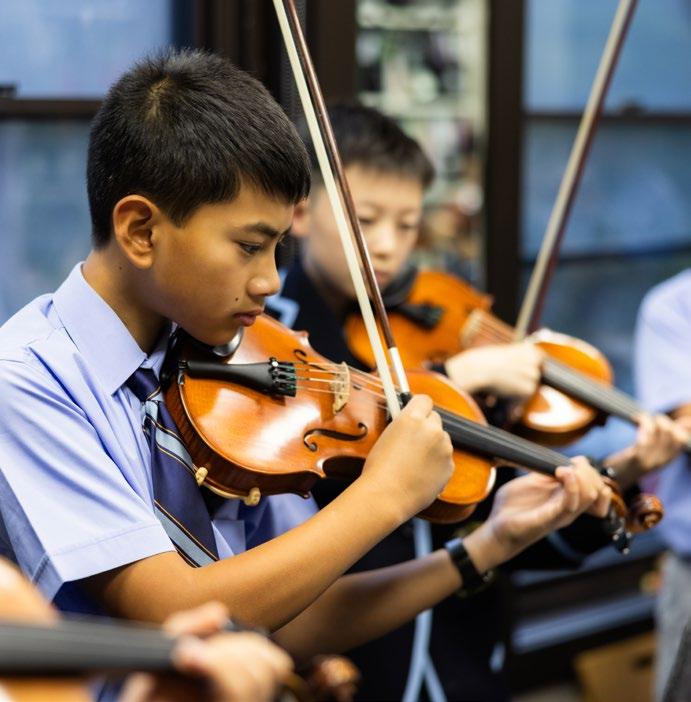
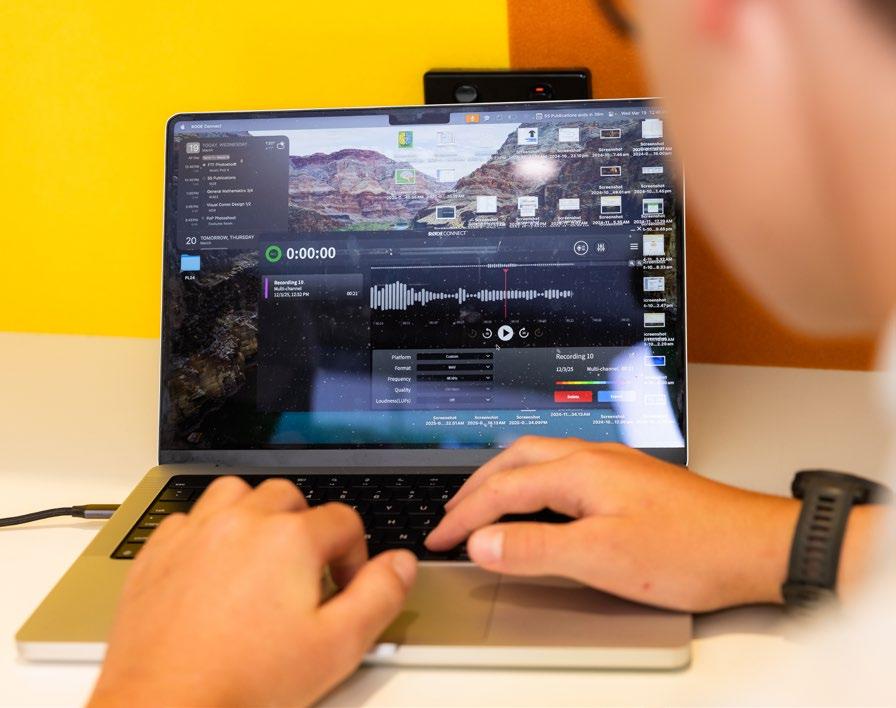
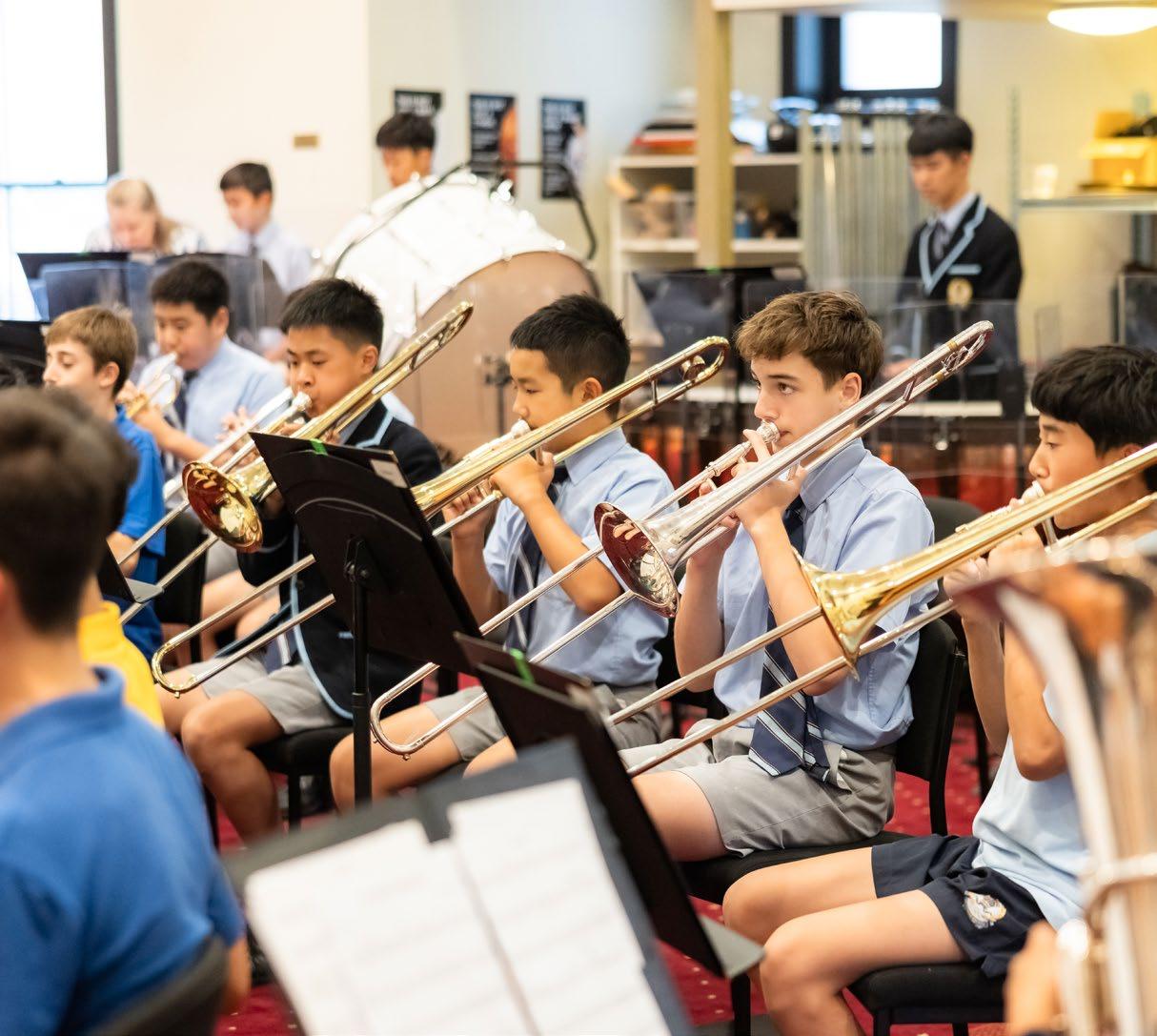
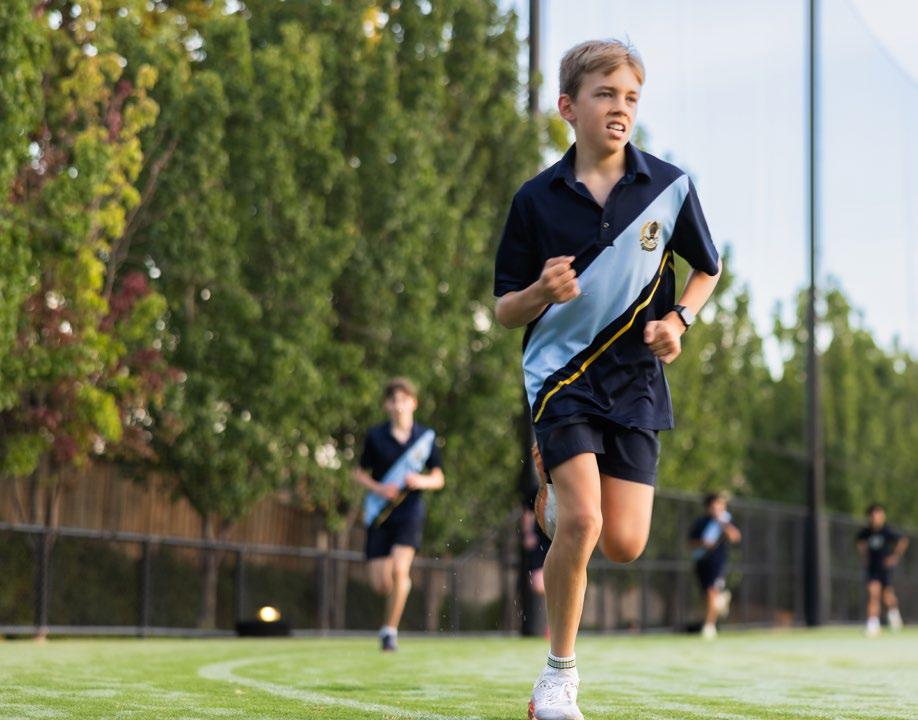
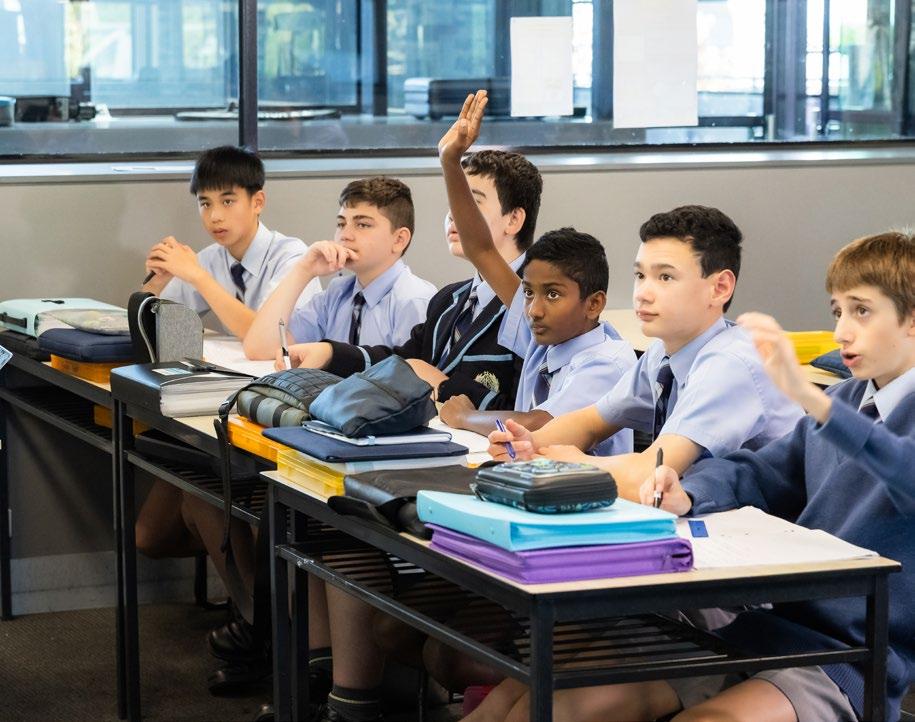
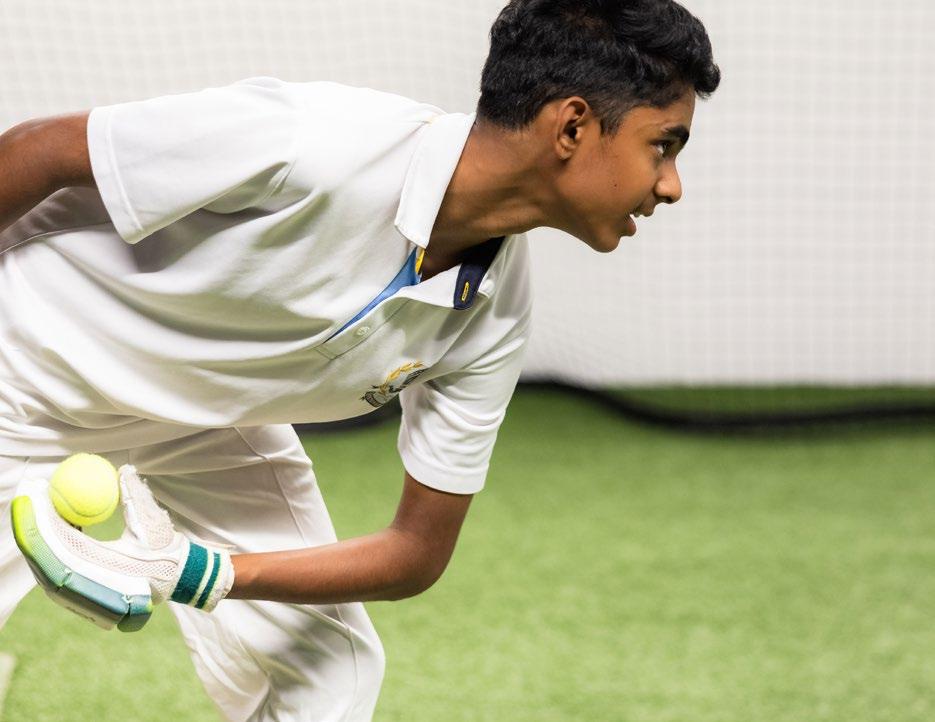
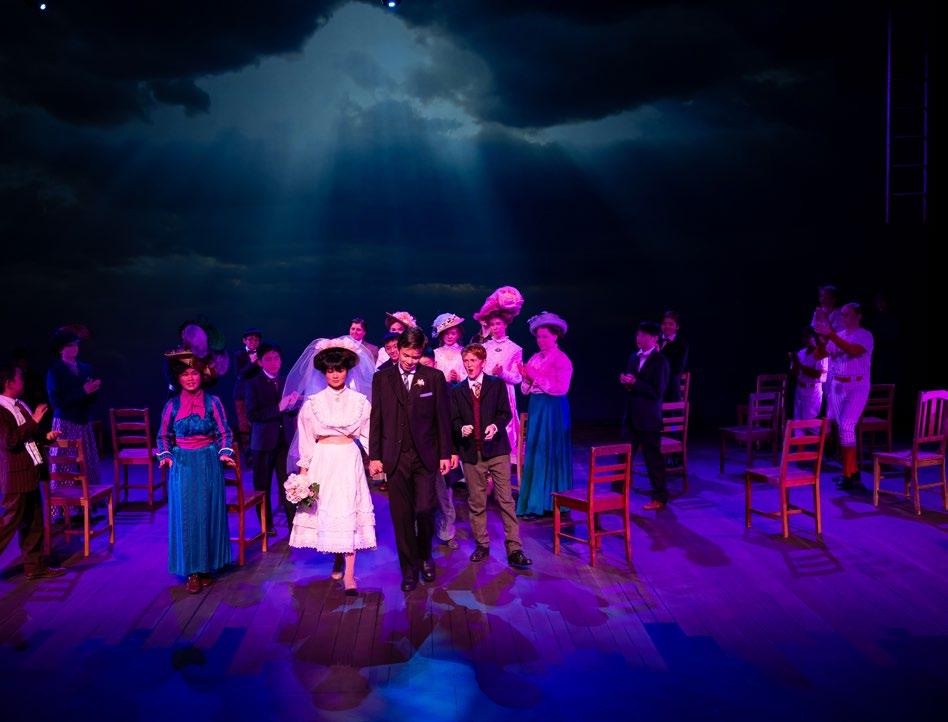
Middle School students have the opportunity to combine with one of the local girls’ schools, to take part in a major Middle School Production each year. Students from nearby girls’ schools such as Camberwell Girls Grammar, Fintona Girls’ School or Canterbury Girls’ Secondary College often join us in these productions. Some students are also invited to take part in the Senior School plays that are also held on an annual basis.
Formal debating is undertaken in Year 8 as part of the English curriculum and skills are developed in various aspects of the discipline. All students in Year 8 will perform a debate in class, as part of a team. Students will have the opportunity to extend their skills by participating in the Debaters’ Association of Victoria’s Interschool Debating Competition.
Participation in sport adds to students’ personal development in many ways. The Sport Department’s goal is to foster within all students a passion for sport, a passion that is alive not only during their schooling but for the duration of their lives. To this end, the Sport Department continues to pursue new sports for the students to enjoy, development squads for students to excel in, and overseas tours for students to enhance their sporting experience.
The Sports program is overseen by our Head of Sport, Mr Lachlan Crawford, who works closely with a professional team of coaches and the academic staff to implement a dynamic program aimed at developing students’ athleticism. Camberwell Sport follows the principles of the Developmental Model of Sports Participation (DMSP) to provide a safe, interactive and friendly environment in which athletes can enjoy the sportsmanship, comradery, and thrill of competitive
sport. The School’s values are at the core of our sports program and serve as cornerstones for the way we practice and play.
All students are required to complete two full seasons of sport each year: Summer during Terms 1 and 4 and Winter during Terms 2 and 3. During Term 3, there is also a third season, Spring, that is encouraged but optional.
Middle School students also have the opportunity to work with a Strength and Conditioning Coach. At this level the programs aim to empower students with the technical skills and knowledge to harness each student’s physical capacity as they progress through their lives.
We believe that placing a priority on physical wellbeing plays a critical role in facilitating all other avenues in a student’s life, allowing him to thrive at school and long afterwards.
The Sports Academy provides a sport pathway encompassing elite athletes, individualised coaching, and wellbeing for all students at the School. Various Sports Programs offer tuition for students wishing to enhance their skills, whether they are beginners or highly accomplished, with access to highly experienced and talented coaches.
Masterclasses and specialist support in the form of sports psychologists, physiotherapists, media training, and career planning are also offered.
More information can be found on DEEDS: Sports Academy.
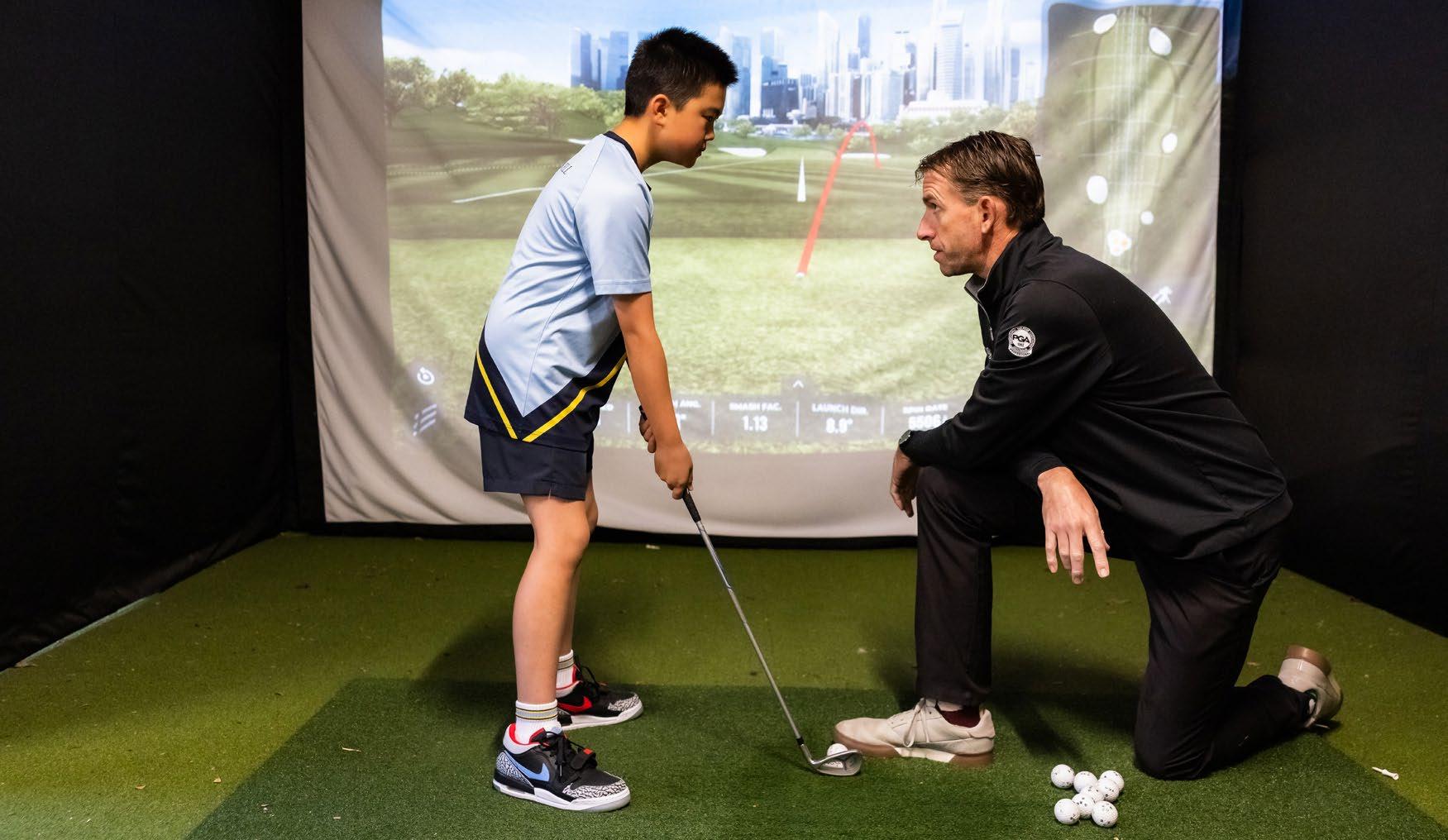
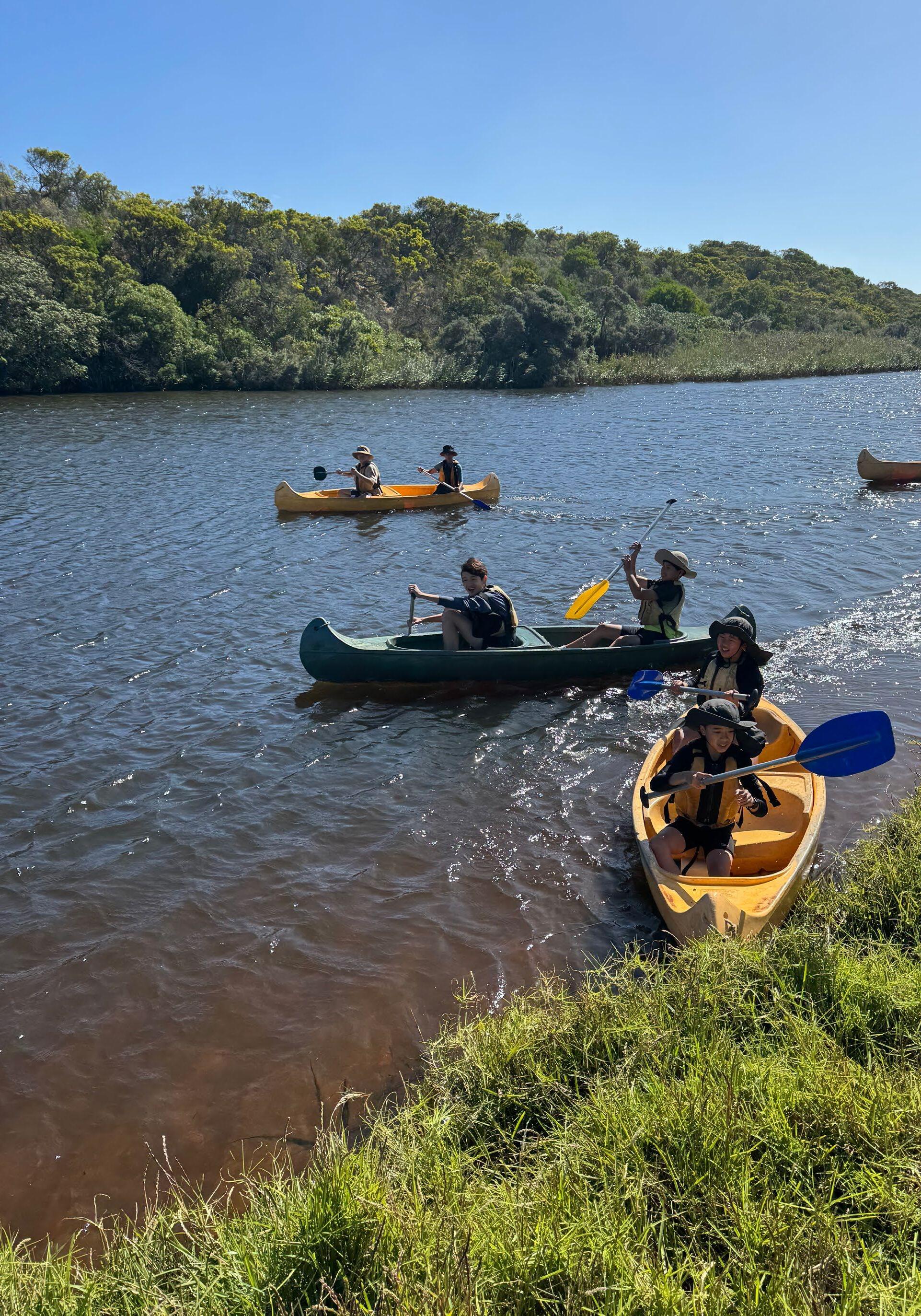
“The main purpose of this camp is for students to get to know their new Form Teacher, as well as other students in their form”
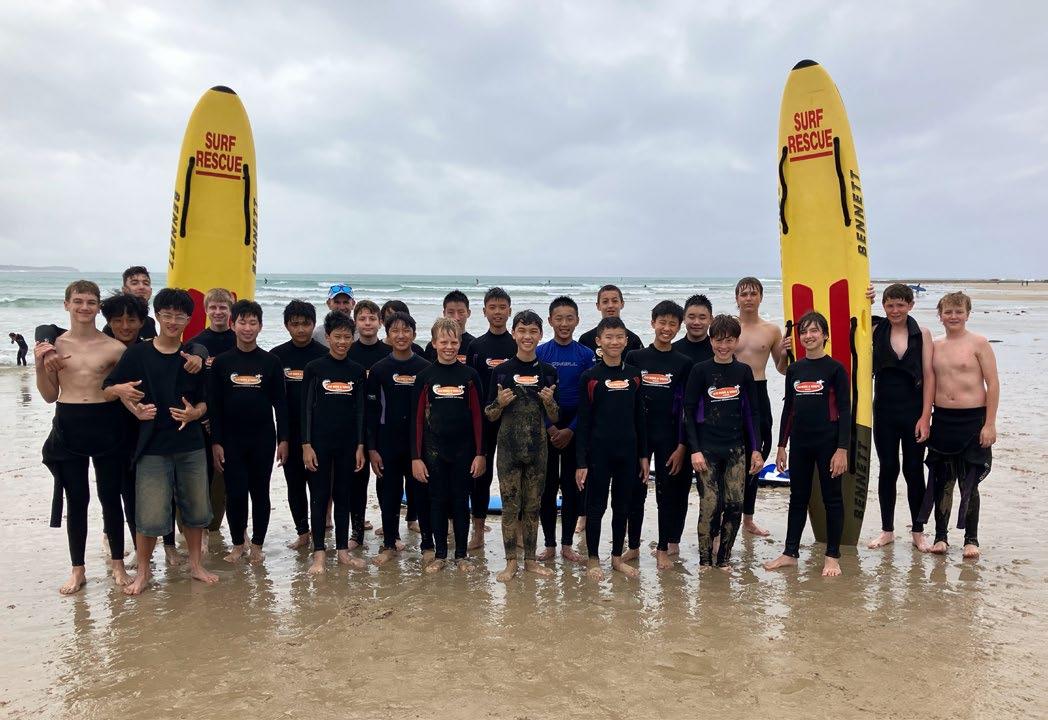
YEAR LEVEL CAMPS
Our students take part in Year Level Camps in Year 6, 7 and 8.
Year 6 – Term 2: Camp Manyung (4 days, 3 nights)
Camp Manyung leads students on a journey of discovery to greater self-awareness, richer understanding of the importance of community and to a greater appreciation of the natural wonders of Port Phillip Bay’s precious coastal environment. Students on this camp will undertake a range of physically challenging and engaging activities including the ‘Giant Swing’, high and low ropes courses, fishing and bike riding.
Year 7 – Term 1: Kangaroobie (5 days, 4 nights)
Held at the Kangaroobie School Camp, Old Ocean Road, Princetown, the camp occurs early in the year to help create strong friendships amongst the students from many different primary schools who come to Camberwell Grammar School in Year 7. They are exposed to new experiences and the potential for new friendships in a relaxed and enjoyable atmosphere. This camp provides students with opportunities for socialisation and shared experiences, developing independence and self-awareness, and establishing positive working relationships with their Form Teacher and other teachers within the Middle School. The students are involved in a range of activities including team-building challenges, kayaking, water safety, hiking and camping.
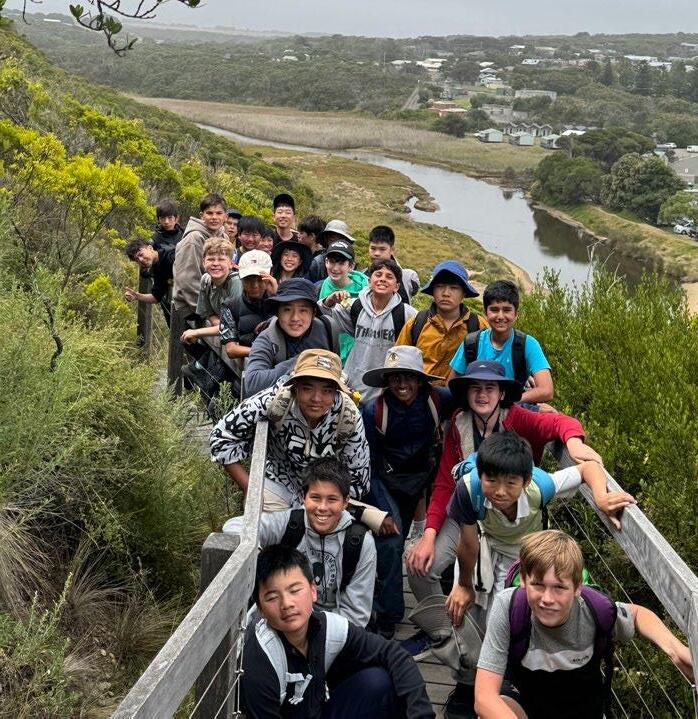
8 – Term 1: Surf Camp at Angelsea (Overnight) and Term 4: Senior School Transition at Lake Eildon National Park, OEG Bush Camp Eildon and surrounds (5 days, 4 night)
Year 8 students participate in an overnight Surf Camp in Week 2 of the school year. The main purpose of this camp is for students to get to know their new Form Teacher, as well as other students in their form. Each form has their own accommodation for this overnight stay, with most beach activities taking place at Ocean Grove and Anglesea.
The Senior School Transition Camp at Lake Eildon includes ‘journey’ style activities that will challenge the students physically as they prepare for the rigorous Outdoor Education camp in Year 9. The camp is also the centrepiece in the thorough transition program that is designed to ensure the best possible introduction to the staff and routines and processes of the Senior School. It is staffed by Year 8 Form Teachers and Senior School Heads of House, while incoming House leaders attend as mentors.
This camp offers the opportunity for students to further develop social maturity through shared experiences and social interaction; to encourage character development and the growth of self-confidence through physical and psychological challenges; to experience new activities allowing them access to environments not previously visited; and to place students in challenging situations where they are required to co-operate as a group in order to meet set tasks.
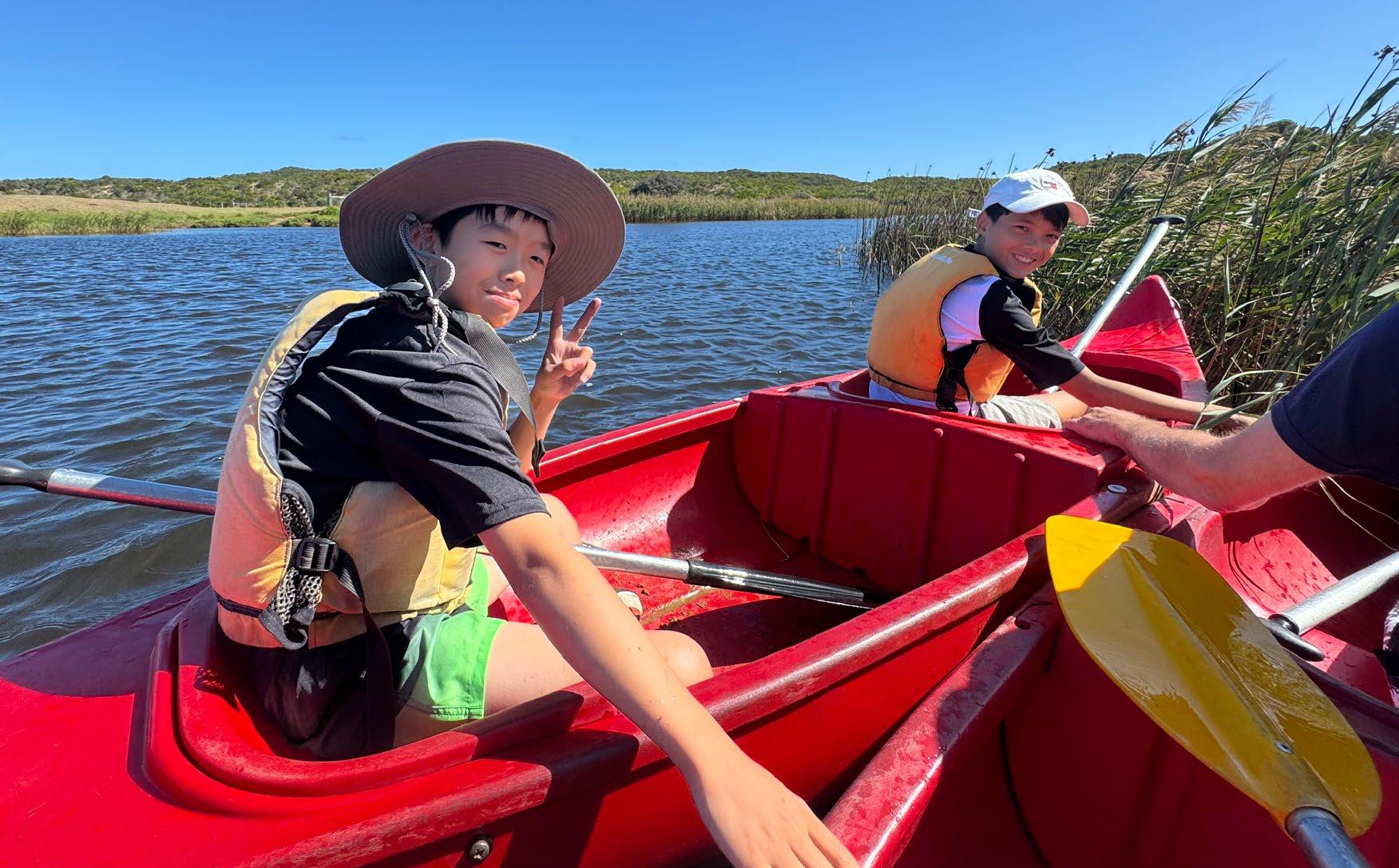
All Year 8 students also take part in the school’s outdoor activities in Term 1 and Term 3. The program aims to develop new skills and encourage self-confidence through challenging outdoor experiences. The skills developed through this program are designed to prepare students for the activities at Lake Eildon in Term 4. Students take part in two of the following activities:
• Whitewater Kayaking
• Sea Kayaking
• Sailing
• Horse Riding
• Mountain Bike Riding
• Sustainability
Middle School students have the opportunity to join a multitude of trips and tours aimed at embedding their learning and challenging their newfound knowledge and skills in a practical setting. Regular trips include:
• Tassie Trek
• Year 8 Cadet Camp (trial)
• Central Australia Tour
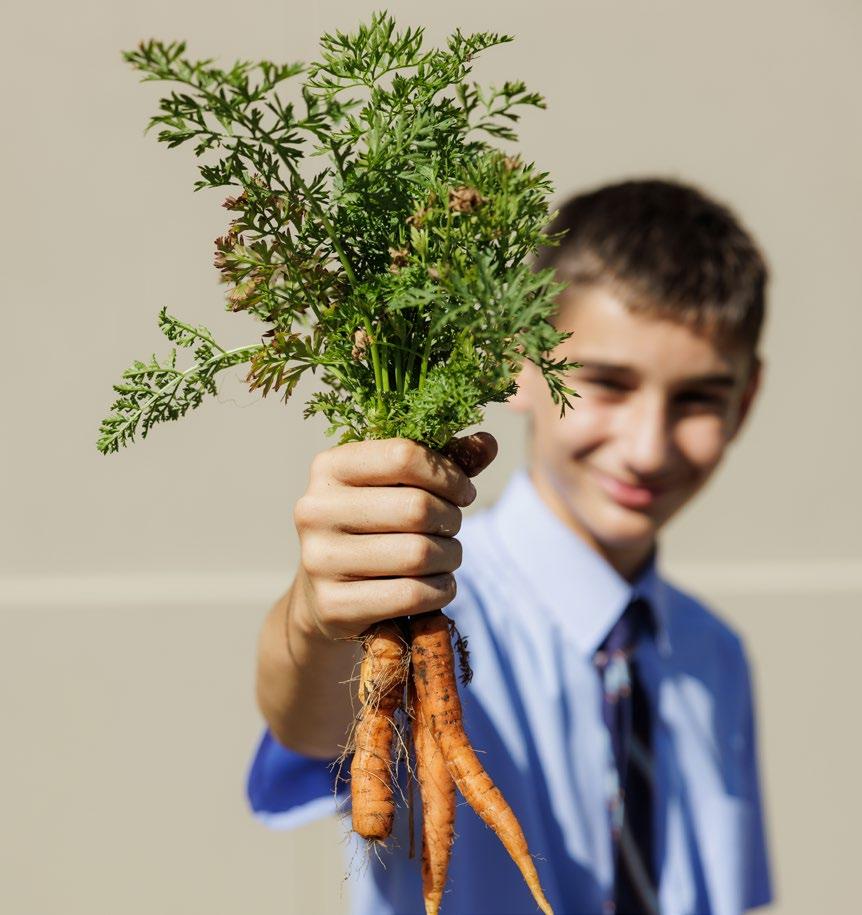
Additional Tours also include:
• NASA Space Camp
• Various Sports Tours (e.g. UK Cricket Tour, Inter-State Swimming, AFL)
• USA Basketball
• French, Indonesian, Chinese and Latin Tours
• Galapagos Islands Trip
• Japanese Cultural and Technology Tour
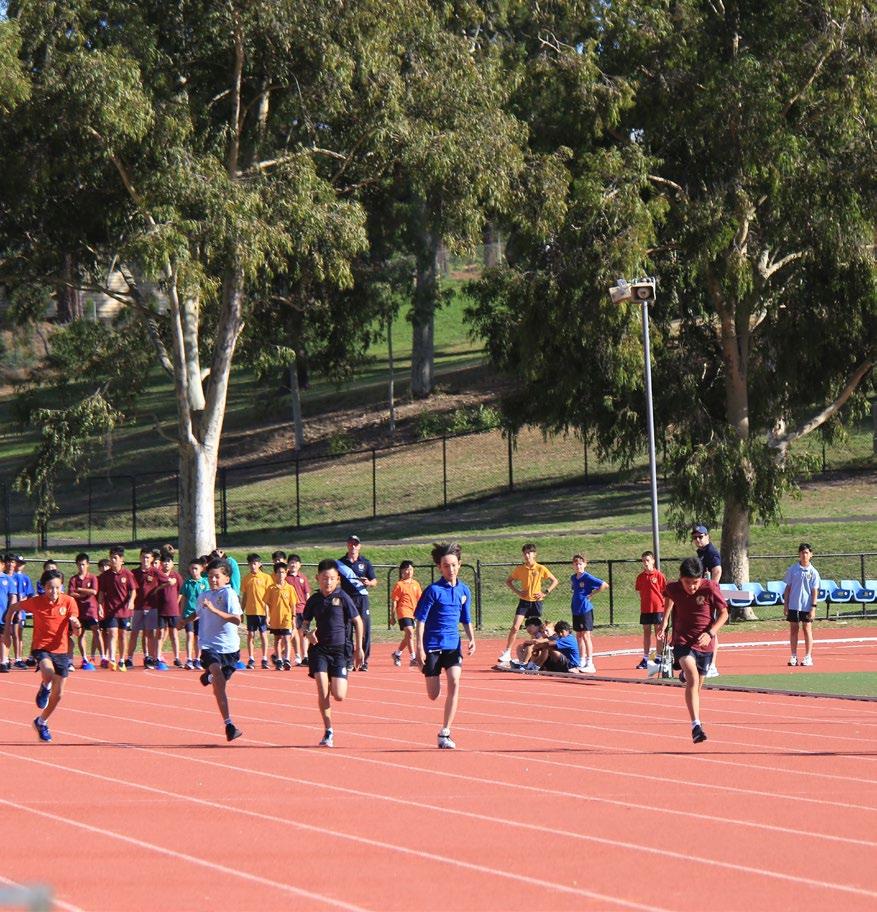
All students in Years 7 and 8 participate in the activities program every Friday afternoon in Terms 2 and 3. Year 6 participate in the program in Term 3. Students can select from a variety of activities with examples including Circuit Training, Entrepreneurship, Introduction to Golf, Table Tennis, Indoor Fencing, Gardening, Taekwondo, Chess and Board Games. This program allows students to follow an interest at school or perhaps try out a new activity. The students benefit from this as they interact with others in their immediate age group and they learn to relate to a wider group of students in a social context, whilst participating in an activity that they enjoy.
COMMUNITY
Opportunity International Koala Kids FairShare
ICT Tech Group Towards 2050
Sustainability Boys in Blue Activities House Activities
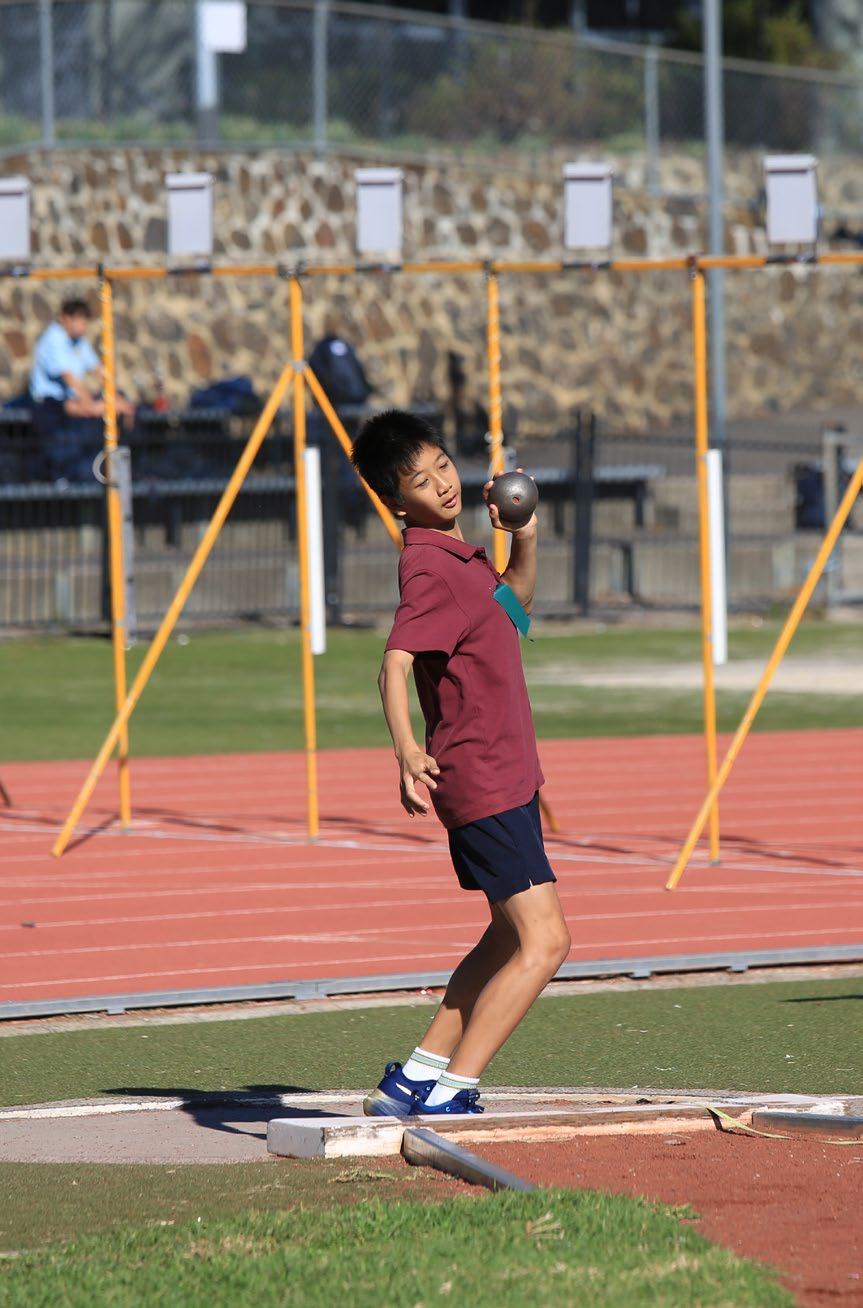
The House Competition offers another avenue of support for our students; through Pastoral Care and vertical connections across year levels. Students compete for their House in a number of activities throughout the course of the year. Major events include Athletics, Swimming, and Cross Country. House round robin sports may include Table Tennis, European Handball, Soccer, Kickball, Ultimate Vortex, Dodgeball, Ultimate Frisbee, and Volleyball. These change and additional activities are offered on a yearly basis.
Students can participate in a range of unstructured and organised lunchtime activities offered by staff. An example of the organised activities on offer include: Table Tennis, Dungeons & Dragons, Coding Club, Chess, Gardening, Mustard Christian Group, Gym and Makerspace. A timetable outlining clubs and groups is provided on DEEDS.
